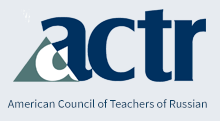Russian Language Journal
Keywords
Russian language, disinformation, propaganda, censorship, media literacy
Abstract
This essay explains the debates and theoretical insights of the emerging transdisciplinary field of Disinformation Studies as a potential set of tools for designing and implementing curricula that include new media or other discussions of propaganda and censorship in the Russian language classroom. I argue that the terminology elucidated in Disinformation Studies can provide both an engaging lesson in Russian language as well as a pedagogically strategic focus on concepts that can motivate students to continue the study of Russian language and Russia-related disciplines. Section 2 provides a summary overview of representative works in the field of Disinformation Studies that introduce basic definitions and theoretical debates. I also emphasize scholarly work in Russian Studies that reveals the historical and culturally specific nature of disinformation. Section 3 takes one English-language model of disinformation and maps a published but incomplete translation of it into Russian to create an interrelated vocabulary set that can be used by teachers and students of Russian in a variety of ways. Section 4 briefly discusses some of the literature on various pedagogical approaches to teaching Russian language media to demonstrate the potential benefits of tapping into the vocabulary set related to the theories of Disinformation Studies to augment the study of Russian-language media, journalism, and the internet for learners of Russian as a second language.
Recommended Citation
Dement, S. (2023). In Theory: Дезинформация. Russian Language Journal, 73(2). https://doi.org/10.70163/0036-0252.1343


